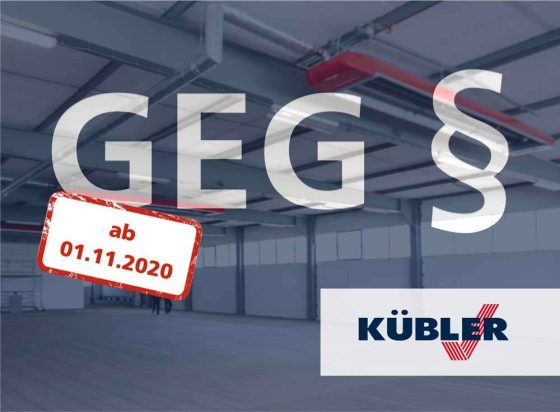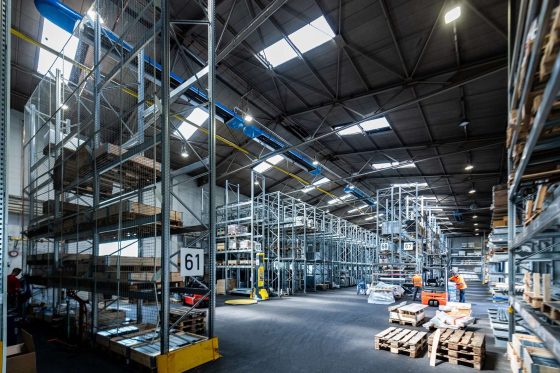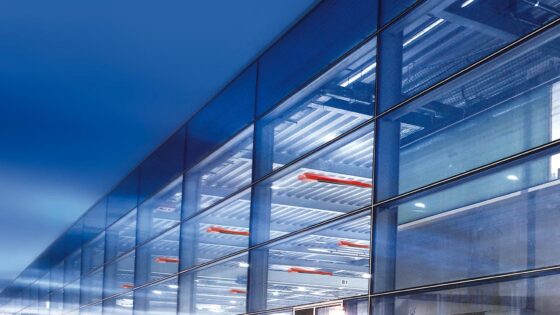The end of the chaos - Bundestag passes Building Energy Act (GEG)
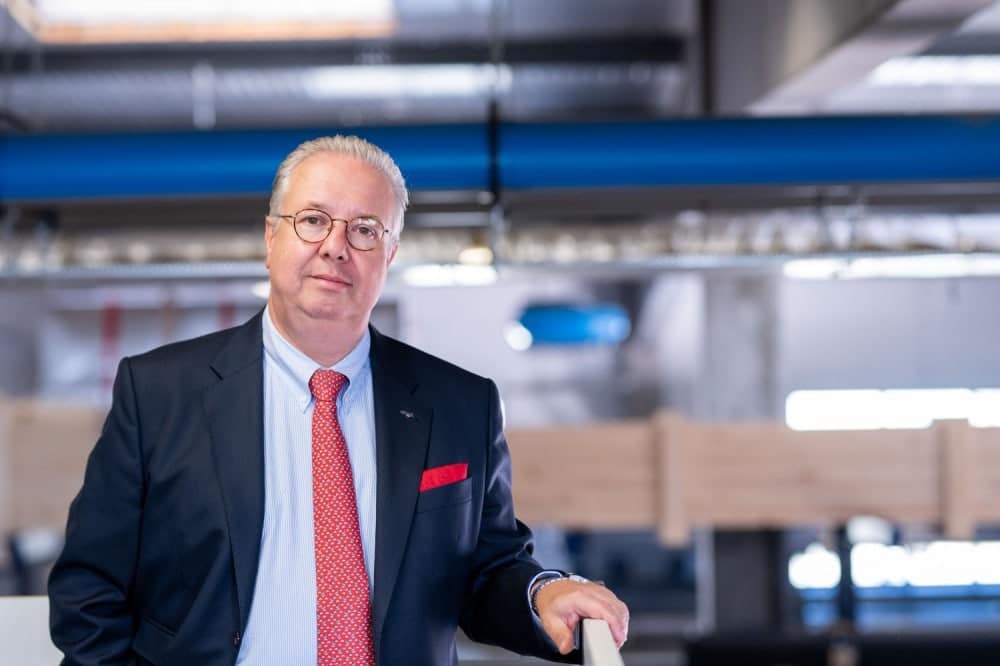
THE END OF THE CHAOS - FEDERAL PARLIAMENT PASSES BUILDING ENERGY ACT
"This is really good news for building owners, especially in the new build sector. The GEG finally takes into account energy-efficient technologies that can do more and are more economical at the same time."
says Thomas Kübler, Managing Partner of KÜBLER GmbH. With the new law, heating technologies can now also be used without any problems, which are clearly superior not only in terms of energy efficiency but also in terms of ease of use." In addition, there is another welcome effect: "From an overall economic perspective, operators of hall buildings now have many more design options at their disposal to realize energy efficiency in their companies. And at significantly lower investment costs".
For years, affected companies and associations have been fighting for the revision of the EEWärmeG. The criticism of this is that the wording of the law simply overlooked the special physical building conditions of rooms with a ceiling height of over 4 m and therefore focused on hydraulic systems, which are significantly less efficient and suitable here.
"With the GEG, we finally have a regulation that is open to all technologies and no longer excludes highly efficient systems that are tailored to the specific requirements of large-scale heating simply because the designers have worked in an undifferentiated manner."
says KÜBLER. The guiding principle "Efficiency first" is finally gaining in importance. Specifically, when the GEG comes into force, decentrally heated halls (zones) with room heights > 4 m will be exempt from the obligation to use renewable energies to cover heating and cooling energy requirements.
What's next? The draft bill to standardize energy-saving legislation for buildings was adopted by the Bundestag on 18 June 2020 with the votes of the CDU/CSU and SPD based on the recommendation of the Committee for Economic Affairs and Energy. There were no significant changes compared to the draft bill from January 2020. However, the abolition of the PV cap and the opened innovation clause (e.g. for hydrogen) should be highlighted. In the next step, the law must now be sent back to the Bundesrat and signed by the Federal President. After publication in the Federal Law Gazette, the GEG comes into force. EnEV and EEWärmeG will then be history.
-
The renovation project Since 1994, the halls at the main site in Neuss have been heated with a central hot air system using a gas-powered hot water boiler system, which resulted in high energy costs. In order to achieve the company's own ambitious climate targets and increase efficiency, it was decided in 2021 to convert to a modern, decentralized heating system. In collaboration with the engineering firm Enviconsult, a heat demand analysis was carried out and [...]
-
Ludwigshafen, August 2020 | Decentralized infrared radiant heating systems are the technology of choice in tall buildings with ceiling heights of over 4 meters. Here, they are often functionally superior to alternative heating systems. Their efficiency is so high that they have been able to exceed climate protection requirements for years, even without the integration of renewable energies. They also offer clear advantages in terms of investment costs, as studies have shown. With the entry into force of the GEG, high-efficiency technologies such as decentralized infrared heating systems are finally finding their way into legislation.
-
The new one pays off. Renting the new hall heating saves Dexion energy and €45,000 in heating costs.Outdated heating technology in hall buildings is expensive and energy-intensive. However, modernization is complex and associated with investment costs. Dexion has found a new and convenient solution to the problem of modernization. The world's leading specialist for warehouse logistics solutions relies on the latest service product from KÜBLER - HeizWerk. And is now benefiting from the advantages of modern infrared heating technology. These include: high energy efficiency, reliable heat supply, a clean, draught-free working environment and reduced heating costs. Without any investment on your part.
-
Using energy smartly and efficiently, planning and investing for the future, digitizing processes, meeting climate targets and GEG, reducing CO2 tax, meeting the requirements of the future today - and all this with maximum technology and investment security: these are the challenges of heating halls today. In new builds as well as in energy-efficient refurbishments. Discover the leading solutions. [...]
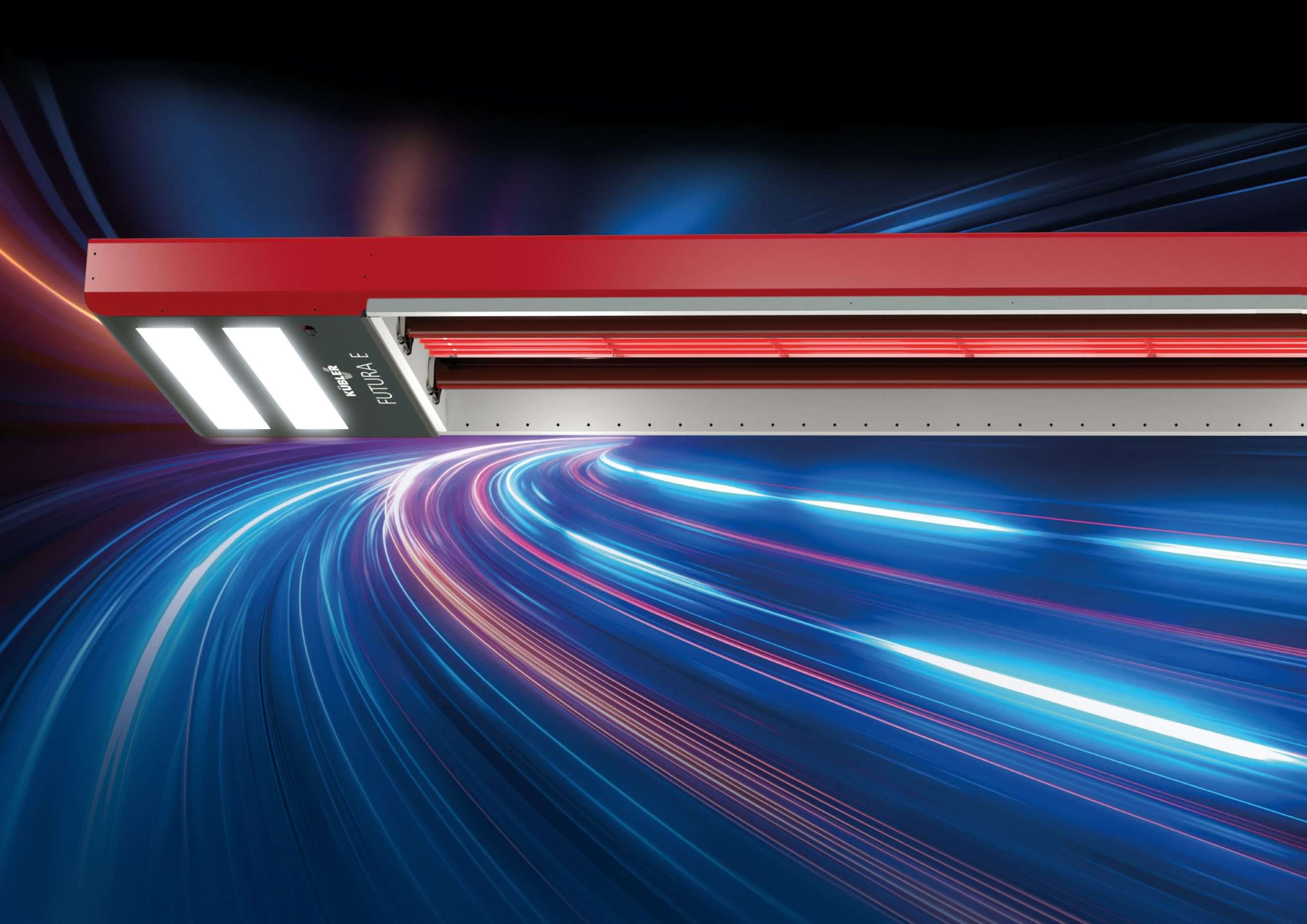
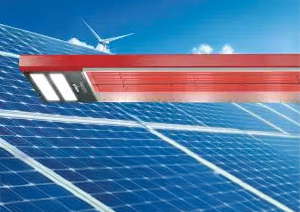
![[object Object]](https://www.kuebler-hallenheizungen.de/wp-content/uploads/2024/07/kuebler_atn_7-rotated-560x420.jpg)
